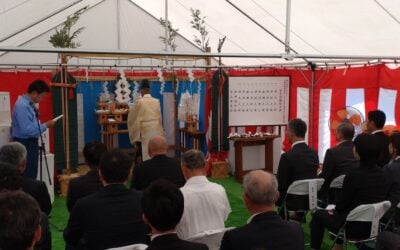
The battery storage markets of Italy, Great Britain and Germany are the top three most attractive for investors in Europe, according to analysis firm Aurora Energy Research.
The fourth edition of Aurora’s European Battery Markets Attractiveness Report (BatMAR) notes that Europe has a total grid-scale BESS capacity of 10.3GW as of October 2024. This is expected to increase fivefold to hit 55GW by 2030, and forecasts suggest Europe could have as much as 126GW of capacity online by 2050, which Aurora notes represents a €100 billion (£82.6 billion) investment opportunity through 2050.
Enjoy 12 months of exclusive analysis
- Regular insight and analysis of the industry’s biggest developments
- In-depth interviews with the industry’s leading figures
- Annual digital subscription to the PV Tech Power journal
- Discounts on Solar Media’s portfolio of events, in-person and virtual
Italy currently leads Aurora’s ranking for battery investment attractiveness, which covers 28 European countries. The company attributes Italy’s attractiveness to potential BESS market investors to an ambitious target of having 50GWh of battery capacity online by 2030, as well as the opening of its ancillary markets to BESS assets.
Great Britain follows immediately behind in the rankings, with a current installed BESS capacity of 4.3GW, which is expected to more than double to reach 10.6GW. Aurora highlights attractive revenue streams in Britain as well as a well-established BESS industry as key factors in the nation’s attractiveness as a market.
Germany ranks third in the attractiveness ratings, having overtaken Ireland owing to its strong market outlook and ambitious targets for renewables. The report also notes that new BESS markets across Europe are emerging as potentially attractive investment opportunities, with Belgium, Hungary and Greece being highlighted as good markets for smaller investors or those with a higher risk appetite.
Furthermore, Aurora notes that Europe is becoming a central global hub for BESS investors, with the projected 333GW increase in variable renewable capacity by 2030 setting the BESS sector on track for exponential growth in the coming years.
Eva Zimmermann, senior associate of flexible energy for pan-European power markets at Aurora Energy Research, stated: “The grid-scale energy storage market continues to be strong, with investment pipelines growing due to promising opportunities. However, battery markets have complex revenue-cost dynamics, and European markets differ in size, revenue streams, and risk levels. This becomes apparent when comparing even our top markets, Italy and Great Britain: While Italy holds opportunities to enter the market as a developer looking for greenfield projects, the pipeline in Great Britain is full, hence only being attractive for investors in further advanced projects.”
Jörn Richstein, research lead for pan-European power markets at Aurora Energy Research, added: “Batteries are a crucial piece in transitioning the energy system to higher shares of renewable technologies by providing much-needed flexibility to the system. However, which types of flexibility provision is needed, and thus which revenue opportunities exist, evolves over time, making this a highly challenging market to navigate and requiring a comprehensive understanding of future local power market developments.”
This story first appeared on Solar Power Portal.






